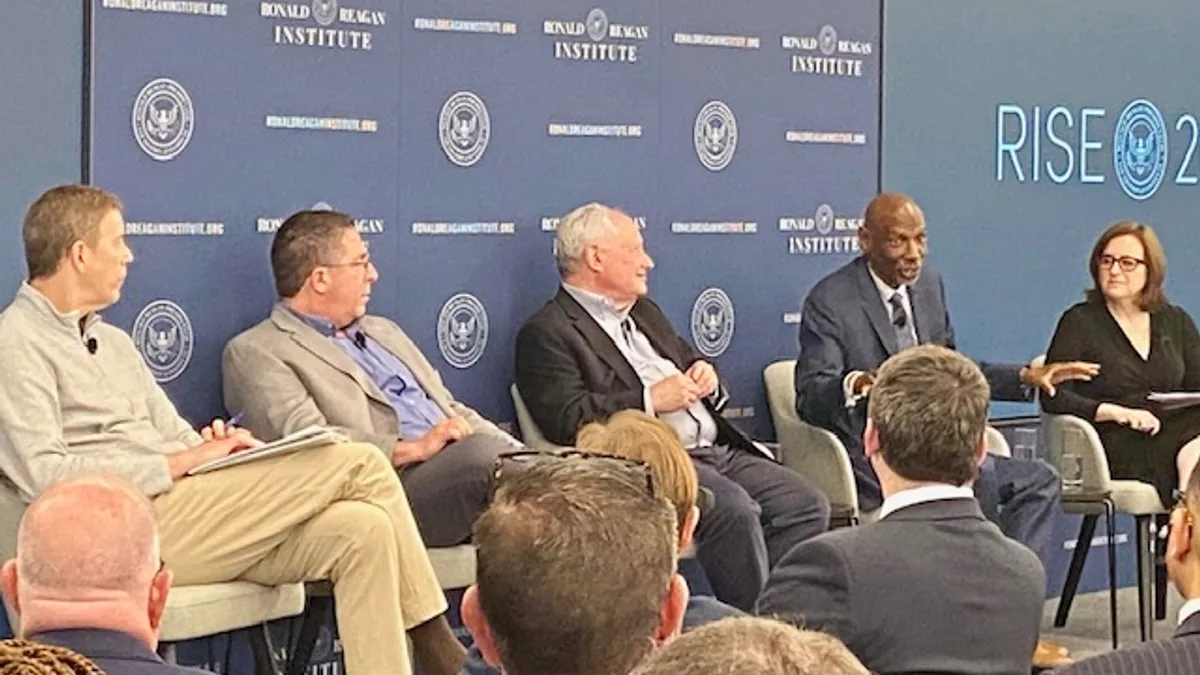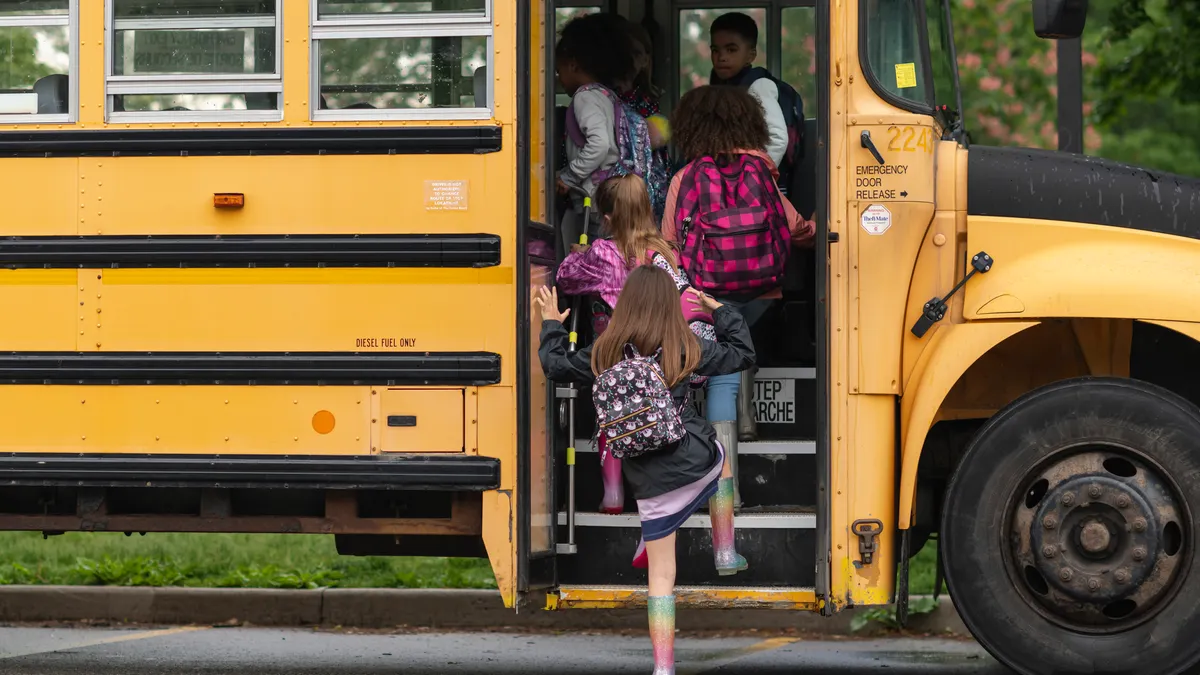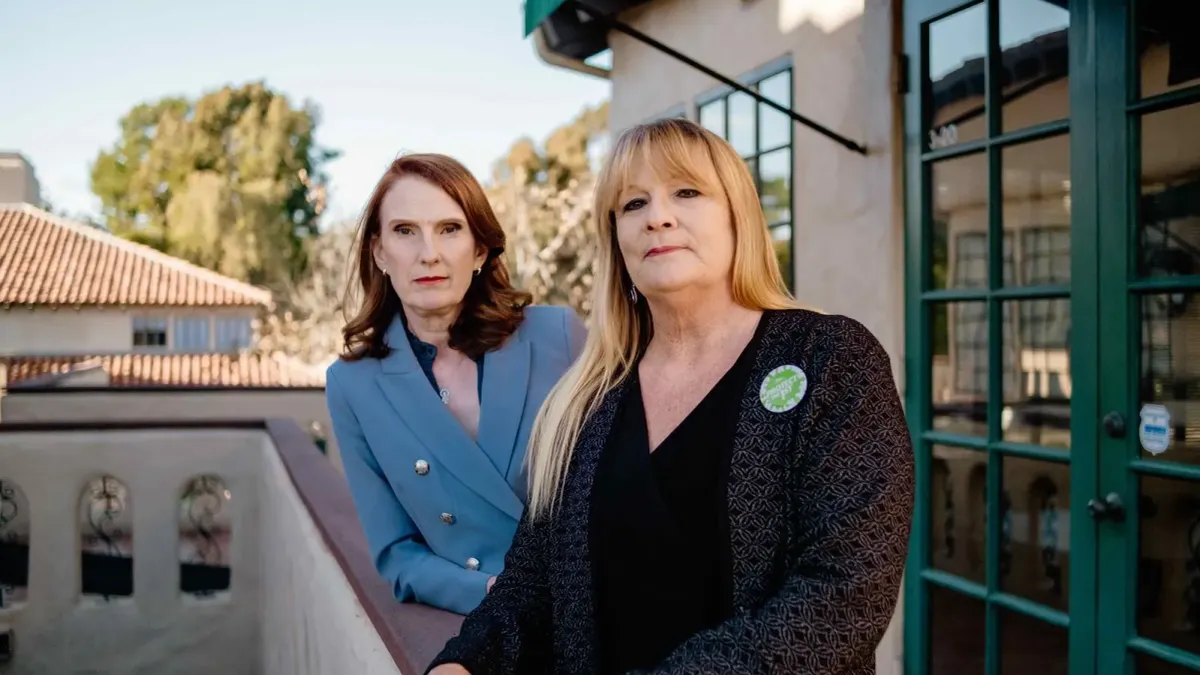WASHINGTON – The teacher shortage crisis could soon ease, with districts scaling back hiring as they deplete their federal emergency funding accounts and school enrollment continues to stagnate, said a panelist during the recent Reagan Institute Summit on Education.
Marguerite Roza, director of the Edunomics Lab at Georgetown University's McCourt School of Public Policy, said public education has increased its workforce out of proportion with student enrollment over the last five or six decades. That situation continued especially with the unprecedented allocation of Elementary and Secondary School Emergency Relief funding to help schools recover from the pandemic, she said.
But schools must obligate all ESSER funds over the next year and a half. "What we can see right now is districts are on the verge of pulling the trigger on a hiring freeze or executing layoffs or trying to close schools," Roza said during a May 25 panel at the institute.
Yet, she said, even if the teacher shortage eases out of crisis mode, schools will still need to recruit, retain and compensate qualified and prepared teachers, Roza and other panelists said.
Recruitment and retention
Kentucky Lt. Gov Jacqueline Coleman said restoring respect for educators is an essential part of recruitment and retention efforts. The state hopes to boost respect for educators through its Education First plan, which would increase pay for all school employees and provide student loan forgiveness for teachers, among other initiatives.
"We're making sure that we lift up this profession financially as well as in a culture of respect," Coleman said.
Several educator supports are included in the 2022 Tennessee Investment in Student Achievement Act. For example, the law requires that state allocations for teacher raises only be spent on teacher raises, said state Commissioner of Education Penny Schwinn, who is leaving her position June 1.
Tennessee has pledged to increase the minimum teacher salary from $35,000 in 2019 to $50,000 by 2026, Schwinn said. This pay increase will especially support rural districts that are competing with larger and wealthier districts for employees, she added.
Javaid Siddiqi, president and CEO of The Hunt Institute, said building welcoming and diverse school and district cultures can help encourage people to enter and stay in the education workforce. One practice that discourages retention specifically for people of color is the tendency to assign them "invisible tasks," such as lunch monitor or disciplinarian, with no extra compensation, Siddiqi said.
Having educators of color in schools benefits all students, not just students of color, said Siddiqi, who is a former Virginia secretary of education. "We need to do better there," said Siddiqi, adding that about 40% of schools don't have a teacher of color.
The RISE conference, an event of the Ronald Reagan Presidential Foundation & Institute, centered on education reform and included sessions on K-12 and higher education topics, including teacher pay, artificial intelligence in schools and education reform.
First Lady Jill Biden, a community college professor, discussed the need to support a variety of career and college pathways for students, as well as expand access to universal preschool.
She urged leaders to find common ground on these areas. "We all want hardworking students to be successful, even if a four-year degree isn't the right path," Biden said. "We want them to be able to access learning that connects to careers that pay well and are shaping our future."
Education reform
One session during the summit featured panelists who reminisced about past educational reforms and opined about what more is needed in the field.
Although education reforms over the last four decades have failed to meet the goal of providing a high quality education for every child, transformative positive changes have been made along the way, the panelists said.
For one, there's now a broad understanding that teachers are responsible for teaching all students, not just certain students, said Frederick Hess, senior fellow and director of education policy studies at the American Enterprise Institute.
"We have fundamentally changed the culture of what's expected of professionals," Hess said.
Bill Kristol, a co-director of Defending Democracy Together, said that since the release of the seminal A Nation At Risk report 40 years ago that raised concerns of low student achievement rates, education has received more attention and more public discussion. That's a good thing, said Kristol, chief of staff to the U.S. education secretary during the Reagan administration when the report was released.
While mindsets have evolved to an understanding that all students deserve to be educated, work remains to ensure all students get a high quality education, panelists said.
Geoffrey Canada, president of Harlem Children's Zone in New York City, said infants, toddlers and children who experience adverse childhood experiences need more services and supports so they're prepared to learn. Harlem Children's Zone, a nonprofit organization, provides services for low-income youth and their families.
"That trauma early on in life stays with kids forever," Canada said. A full-service community school model can help students and families in this situation to access healthcare and social-emotional services, he said.
Aligning education with health and social services may be difficult and complicated, but it's essential, Canada said.
"We find that if you bring those forces together… you begin to eliminate some of these academic differences," he said.
Several panelists advocated for expanded access to summer programming.
Arne Duncan, managing partner at the Emerson Collective and former U.S. education secretary in the Obama administration, said summer programs are especially helpful for students who are behind academically. He also recommended school systems track performance and outcomes data. The Emerson Collective, a for-profit corporation, partners with communities, business and government leaders to spur change.
Analyzing performance data can help districts better target their resources, Duncan said. "Just have honest conversations of where we're moving the needle and not and learn from where we are and challenge where we're not.”






















